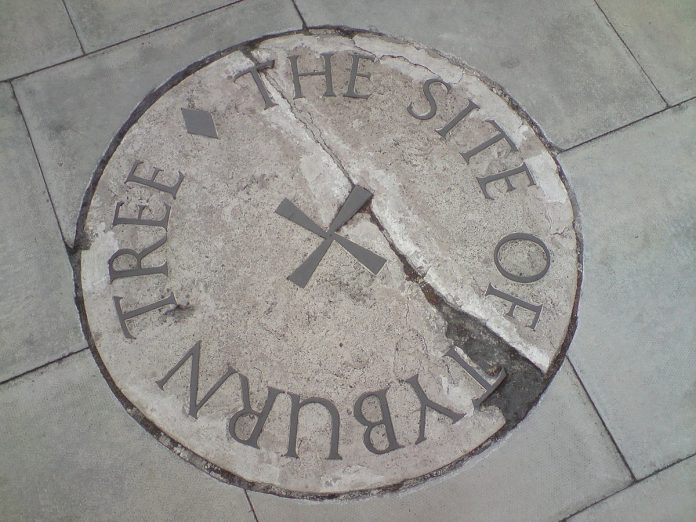
Before this day ends, a brief word about the remarkable, and largely unknown, Blessed James Duckett, about whom I knew nothing until a write for Catholic Insight mentioned his name just today, and I just had to mention him to readers.
He was one of the panoply of ‘English martyrs’ of the Reformation, put to death at Tyburn in 1602, by the customary and gruesome method of drawing and quartering, for the ‘crime’ of publishing Catholic devotional books. James had been raised a Protestant, but a read through The Foundation of the Catholic Religion convinced him of the truth of the Faith, and he converted.
James was a book publisher, as well as a tailor, who married a widow, Anne Hart, later in life. They had at least two sons we know of, both of whom became priests, one a Carthusian, who wrote a reflection on the life of his father. Of twelve years of married life that were given to James and Anne, nine were spent with James in prison, but he always managed to gain release, with the help of influential friends.
But the day finally arrived that he was betrayed by a bookbinder, Peter Bullock, to gain his own release from prison. Much good it did him, for Bullock was then sent to the gallows with James on the same cart. The jury initially found Duckett not guilty at trial, but they were browbeat by the judge into changing their minds. On the way to Tyburn, James forgave his betrayer, and, given a flagon of wine as he passed by on the hurdle by a benefactor, he stopped and cajoled his wife into also sharing a drink, as as sign of forgiveness for Bullock. One can sympathize she was loathe to do so, but she eventually relented.
As they were about to be hung, disembowelled and torn limb from limb, James hugged Bullock, urging him to return to the Faith before death – there is no evidence Bullock did so, but we may hope he in some hidden way availed himself of God’s mercy during his agony, like the good thief. Certainly, James Duckett went to his maker on April 19, 1602 in good spirits, resigned to, even joyful in, God’s holy will. He was beatified by Pope Pius XI in 1929 with many other beati, and we pray for his, and all their, intercession.
(source, in partibus: wikipedia.org)
